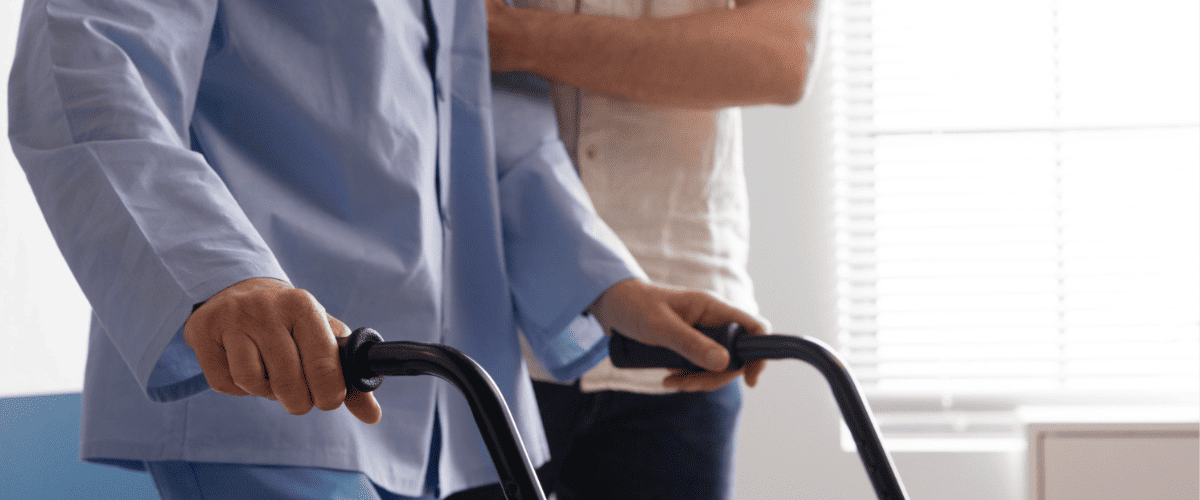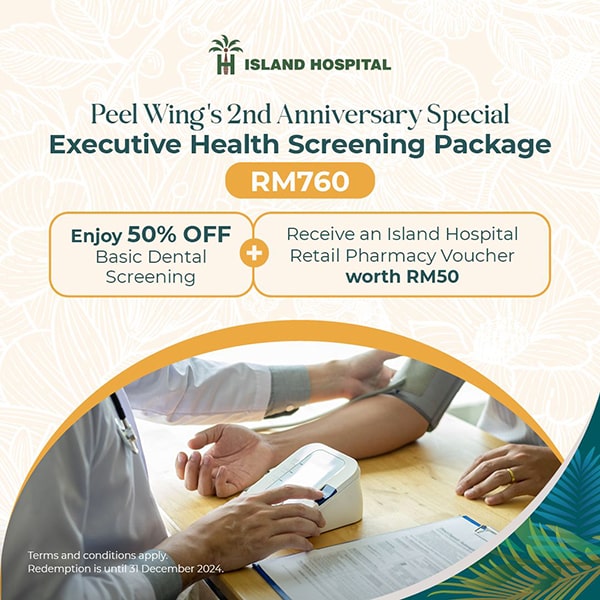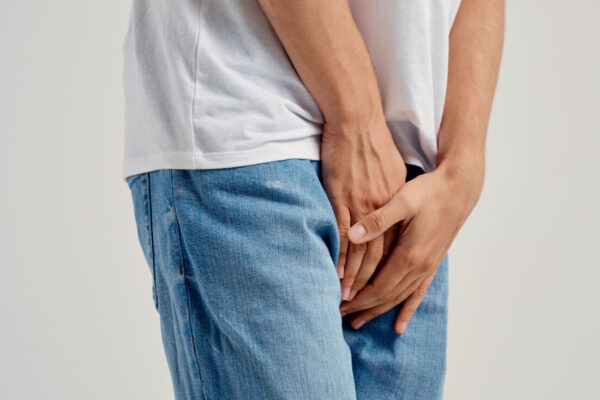
24 Oct What to Expect During Stroke Recovery (A Guide for Patients & Families)
What to Expect During Stroke Recovery (A Guide for Patients & Families)
By Island Hospital | October 24, 2024 10:00:00 AM
Medical Reviewer: Dr. Tan Yi Yan, Rehab Physician
What is Stroke Rehabilitation?
Stroke rehabilitation are therapies and treatment done via exercises and activities to help patients improve their physical, psychosocial (psychological and social aspects), and vocational (skills to perform a job) potential – while taking into consideration their physical and environmental challenges.
To learn more about stroke and its symptoms, watch this succinct explanation by Dr. Haniffah, a neurologist at Island Hospital:
What to Expect After a Stroke
Understanding The Effects of Stroke
A stroke is the result of damage to the brain caused by a disruption of blood supply to part of the brain or sudden bleeding in the brain. It can result in problems in human functioning, which varies according to the area it occurs:
- Cerebrum (Right side and left side of the brain): A stroke in this area may impact movement and feeling, speech, thinking, reasoning, memory, vision, and emotions. The exact effect depends on whether the stroke occurred on the right or left side
- Cerebellum (Back of the brain): A stroke in this area may impact fine movement, coordination, and balance.
- Brainstem (Base of the brain): A stroke in this area may impact vital functions such as heartbeat, blood pressure, and breathing; and impact motor or neurological functions such as eye movement, hearing, speech, chewing, and swallowing.
The effects of stroke are including (but not limited to) the following:
- Muscle weakness
- Changes in muscle stiffness
- Poor balance and coordination
- Inability to walk
- Loss of awareness or neglect of the weak side
- Reduced awareness of temperature, pressure, or pain.
- Difficulties judging your position in space and distance from objects.
- Double vision
- Nystagmus (uncontrolled eye movements)
- Visual field loss (partial or limited vision)
- Sensitivity to light
- Extreme tiredness
- Coma
- Reduced concentration
- Memory problems
- Mood changes (e.g., anger, depression)
- Behaviour changes (e.g., inappropriate actions, apathy)
- Difficulty expressing yourself or difficulty understanding others.
Note: It is common to feel overwhelmed and depressed during the recovery process. When these feelings arise, reach out to someone you trust or meet up with your doctor. Remember, you’re not alone, and help is just around the corner.
Connect with fellow stroke survivors through local organisations such as the National Stroke Association of Malaysia (NASAM). NASAM is committed to spreading awareness about stroke prevention, promoting early rehabilitation, and showing that life after stroke is possible.
Did you know 1 in 5 people develop dementia within a year of having a stroke? Learn about the link between these two conditions in our article on “Can Stroke Lead to Dementia?”.
Going Back Home (Discharge)
Discharge from a rehabilitation facility is a significant milestone in a stroke survivor’s journey.
It marks the transition from intensive care to independent living, where patients can apply the skills and strategies learnt during rehabilitation.
Before leaving, healthcare professionals often conduct a thorough assessment to ensure the individual is ready for home life. Your healthcare team will consider the following factors before sending you home:
- Are you capable of taking care of yourself?
- Are you able to follow medical advice and take prescribed medications?
- Do you have a caregiver (i.e., someone who is available to help)?
- Are you independent in terms of mobility and communication? (If not, a caregiver may be needed).
If the answer to all these questions is a resounding “yes!”, you’ll be given the green light to go back home. Once the decision is made, start to make the necessary preparations:
- Doing home modifications: Depending on your needs and abilities, renovations such as widening doorways or building ramps (for wheelchairs) may be needed. A more cost-friendly alternative is removing barriers (e.g., rugs) and installing assistive devices (e.g., grab bars).
- Adjusting to daily activities: Activities like meal prep, eating, dressing, and grooming may require extra help. For instance, use electric appliances for cooking, special utensils for eating, and replace buttons and laces with velcro fasteners for easier dressing.
- Returning to your everyday life: Recreational activities and hobbies (e.g., gardening) are a great way to relieve stress, improve quality of life, and build a sense of belonging in your community.Do note that the rate of recovery naturally slows in the months after a stroke. Thus, set short and long-term goals to ease the process of finding new interests and regaining strengths and abilities.
At Island Hospital, our Neurology , Cardiology and Rehabilitation specialists will guide your preparation for returning home or moving to a care facility. Working alongside rehabilitation experts (doctor, physical, occupational, and speech therapists), we’re dedicated to helping you regain function and improve quality of life.
What Activities and Therapies Are Involved in Stroke Rehabilitation?
Doing Exercises
Regular assessments are a crucial component of stroke rehabilitation. These evaluations help healthcare providers gauge the patient’s progress, identify areas that need further attention, and adjust treatment plans accordingly.
Assessments may include standardised tests for mobility, strength, and cognitive function, as well as subjective evaluations from the patient regarding their own experiences and challenges.
This ongoing monitoring not only helps track improvement but also empowers patients by involving them in their own recovery journey, fostering a sense of ownership and motivation.
Undergoing Assessments
Physical exercises are fundamental in stroke rehabilitation, focusing on enhancing strength, coordination, and balance.
These exercises can range from simple movements, like lifting a leg while seated, to more complex activities that mimic daily tasks, such as walking or climbing stairs.
Therapists often incorporate adaptive techniques to ensure safety and effectiveness.
Engaging in regular exercise not only promotes physical recovery but also boosts mental well-being, helping to alleviate anxiety and depression that can accompany a stroke.
What is the Best Diet to Recover from a Stroke?
Research has found that diets such as the Mediterranean-style diet and DASH (Dietary Approaches to Stop Hypertension) diet are heart-healthy options to help individuals recovering from stroke.
The American Stroke Association recommends diets that are rich in:
- Fruits and vegetables
- White and oily fish (High in omega-3 and fatty acids)
- Fibre-rich whole grains (e.g., whole grain bread, brown rice)
- Legumes, nuts, and seeds
- Lean proteins (extra-lean cuts of meat, remove visible fat)
- Low or fat-free dairy products
- Healthy unsaturated fats (e.g., olive oil, corn oil, fish, avocados)
On the other hand, they advice patients to avoid:
- Saturated fats (e.g., red meat, full-fat dairy products)
- Trans fats (e.g., packaged cookies and cakes)
- Added sugars (e.g., sugar, corn syrup)
- High sodium / Salty foods
- Refined grains (e.g., white bread, white rice)
- Ultra-processed foods
Patients should quit smoking and limit alcohol drinking, as these habits increase the risk of another stroke. Besides that, smoking and alcohol are risk factors for other cardiovascular diseases such as heart failure and heart attack.
As stroke survivors may face swallowing problems (dysphagia), they are recommended to have a review by a speech therapist before starting a soft diet. A great suggestion is to add in nutritious liquids instead of just water when blending the food, to ensure your body gets enough nutrients and energy.
Not sure where to start? Consult your doctor or dietitian for personalised guidance. They can create a suitable meal plan that contains all the necessary nutrients to support the healing process.
Can Someone Recover 100% After a Stroke?
The answer is that it depends.
Recovery looks different for every stroke survivor. It is influenced by factors such as the timeliness of treatment, severity of the stroke, and stroke location. While some individuals may regain nearly all their pre-stroke abilities, others may face lasting disabilities.
Generally, patients with a less severe stroke have a higher chance of making a good recovery, compared to patients with a more severe case. However, this is more a rule of thumb rather than an absolute law.
More importantly: rehabilitation can lead to significant improvements. The challenge lies in the journey, which is often gradual and requires patience and persistence. It’s easy to feel discouraged when more time is needed to experience the results or reach the recovery milestones.
Therefore, it’s important for stroke survivors and their families to set realistic short and long-term goals, celebrating small victories along the way and focusing on progress rather than perfection.
How to Prevent a Second Stroke?
To reduce the risk of a recurrent stroke, patients should make healthy lifestyle changes:
- Exercise regularly (around 120 to 250 minutes of aerobic physical activity every week).
- Maintain a healthy weight.
- Eat a heart-healthy diet (Refer to the previous section).
- Quit smoking (avoid secondhand smoke too) and drinking alcohol.
- Take antithrombotic medication (as prescribed by your doctor).
- Manage risk factors such as high blood pressure (hypertension), diabetes, high cholesterol, and sleep apnea.
Looking to embrace a heart-healthy lifestyle? This complete guide on how to prevent heart disease covers everything you need to know!
We’re Here to Assist Your Journey to Recovery
Recovering from a stroke is a journey that requires dedication, support, and a comprehensive approach to rehabilitation. With the right resources and a positive mindset, many individuals can make remarkable progress on their path to recovery.
At Island Hospital, we understand the importance of comprehensive stroke and rehabilitation care. Our Neurology Department, Cardiology Department, Heart Centre and Rehabilitation Center are equipped with advanced technology and staffed by a dedicated team of specialists, nurses, and support staff.
Our commitment to excellence has earned us local and worldwide recognition:
- A finalist for Malaysia’s Flagship Medical Tourism Hospital Programme
- A place on Newsweek’s lists of World’s Best Hospitals 2024
- A place Best Specialized Hospitals Asia Pacific 2024 (Cardiology).
Hence, whether you are seeking preventive care, diagnostic services, or advanced treatments for heart-related conditions, Island Hospital is your trusted partner in achieving optimal neurological and cardiovascular health.
Don’t Wait Until It’s Too Late – Get a Screening That Covers All The Bases

To celebrate Peel Wing’s 2nd Anniversary, we’re offering our comprehensive Executive Health Screening Package for just RM760 – delivering peace of mind through a head-to-toe health assessment.
Our package features vital health screenings, including Cardiovascular Assessment, Full Blood Picture, Radiological Screening, Diabetes Screening, Kidney Function Test, and much more.
What’s Included in Your Screening Experience:
✔ Physical examination
✔ Complete medical report
✔ Consultation by Health Screening Physician/Specialist
✔ Choice of light refreshments
✔ Exclusive Island Hospital woven bag
✔ A 50% voucher for basic dental consultations
✔ A RM50 voucher for Island Hospital Retail Pharmacy
FAQ
What are good signs after a stroke?
Good signs include improved mobility, better speech and communication, increased independence in daily activities, and the ability to follow instructions.
What is the best exercise after a stroke?
Best exercises include walking, strength training, balance exercises, and flexibility activities, tailored to the individual’s ability and supervised by a therapist.
Is it good for stroke patients to sleep a lot?
While adequate rest is important for recovery, excessive sleep can indicate fatigue or complications. It’s essential to maintain a balance between rest and activity.
What is the lifespan of a stroke patient?
Lifespan varies widely based on factors like stroke severity, overall health, and lifestyle. Many stroke survivors live for years with appropriate care and lifestyle changes.
Can a 70 year old recover from a stroke?
Yes, many 70-year-olds can recover from a stroke, though recovery may vary based on individual health, support, and rehabilitation efforts.
Related Doctors
| Derived from | Complications |
|---|






